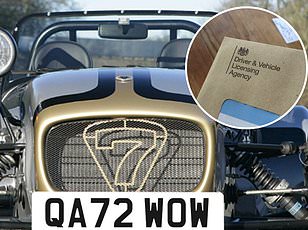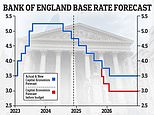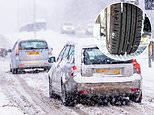DVLA not 'satisfactory' for classic car owners and urgent reforms are needed, review finds
- Classic car owners have had issues registering historic vehicles since 1980
The Driver and Vehicle Licensing Agency has been found to be lacking when it comes to classic car owners' customer experience.
A newly-published review of the DVLA has shown that classic car owners had a 'less satisfactory' experience using the agency's systems, in contrast to the positive experiences of most other motorists.
The Historic and Classic Vehicles Alliance welcomed the review, warning that 'the treatment of historic and classic vehicles [...] has trapped too many vehicle owners and businesses in a spiral of uncertainty'.
The review follows a 'once-in-a-lifetime' call for evidence where drivers of historic vehicles were asked to suggest ways the DVLA could better register and preserve classic cars.
The results of the call for evidence have yet to be acted upon.

A newly-published Driver and Vehicle Licensing Agency review has shown that classic car owners had a 'less than satisfactory' experience
The Department for Transport-led review, published earlier in November, found the DVLA to be 'critically important' but also revealed that customers using services related to classic cars had a 'less satisfactory' experience – in particular when it came to registering historic vehicles and classic cars.
The issues – which are part of an ongoing problem with how to correctly register and protect classic cars – were put down to 'legislative constraints, dated systems, inexperienced handlers and unoptimised processes'.
Lead reviewer Janette Beinart suggested that the DVLA should do more to 'elevate the customer voice across its business, with a greater focus on engagement, empowerment and transparency'.
Difficult to navigate systems, unclear rules and a laborious appeal process are part of a 'systemic' issue that the HCVA has been campaigning for over four years to change: 'It's the only industry that operates to rules not published anywhere', former HCVA chief executive Guy Lachlan previously told This is Money.
In response to the findings a DVLA spokesperson told This is Money: 'DVLA engages regularly and constructively with key classic car industry stakeholders through the Historic Vehicle User Group.
'In May, we launched a call for evidence seeking views on how to support the classic car community. We are reviewing the responses and will engage fully with interested parties on any future changes.'

The issues – which are part of an ongoing problem with how to correctly register and protect classic cars – were put down to 'legislative constraints, dated systems, inexperienced handlers and unoptimised processes

The classic car call for evidence was announced by Secretary of State for Transport Mark Harper at Bicester Heritage on May 9
The classic car registration process hasn't been updated since the 1980s.
Today the registration process after restoration and upgrades doesn't take into account how historic vehicles are improved with modern technology, causing issues when it comes to registering cars that have undergone repairs and modifications.
Frequently historic vehicles have been slapped with a Q-plate (used on vehicles where their history is unverifiable).
The call for evidence – which ran for four weeks before concluding on 4 July (election day) - was designed to help the DVLA improve its system.
Following the DfT's report The Historic and Classic Vehicles Alliance's CEO Dave Keller said: 'The Minister for Future of Roads [Lilian Greenwood] has effectively given the green light for the DVLA to move forward on presenting outcomes and recommendations from the call for evidence into registering historic, classic, rebuilt vehicles and vehicles converted to electric.
'This is an area that is specifically referenced in the report as requiring reform, and the HCVA again stands ready to offer its substantial industry expertise to assist the DVLA and DfT in achieving sensible and effective outcomes for consumers, industry and Government.'
































































